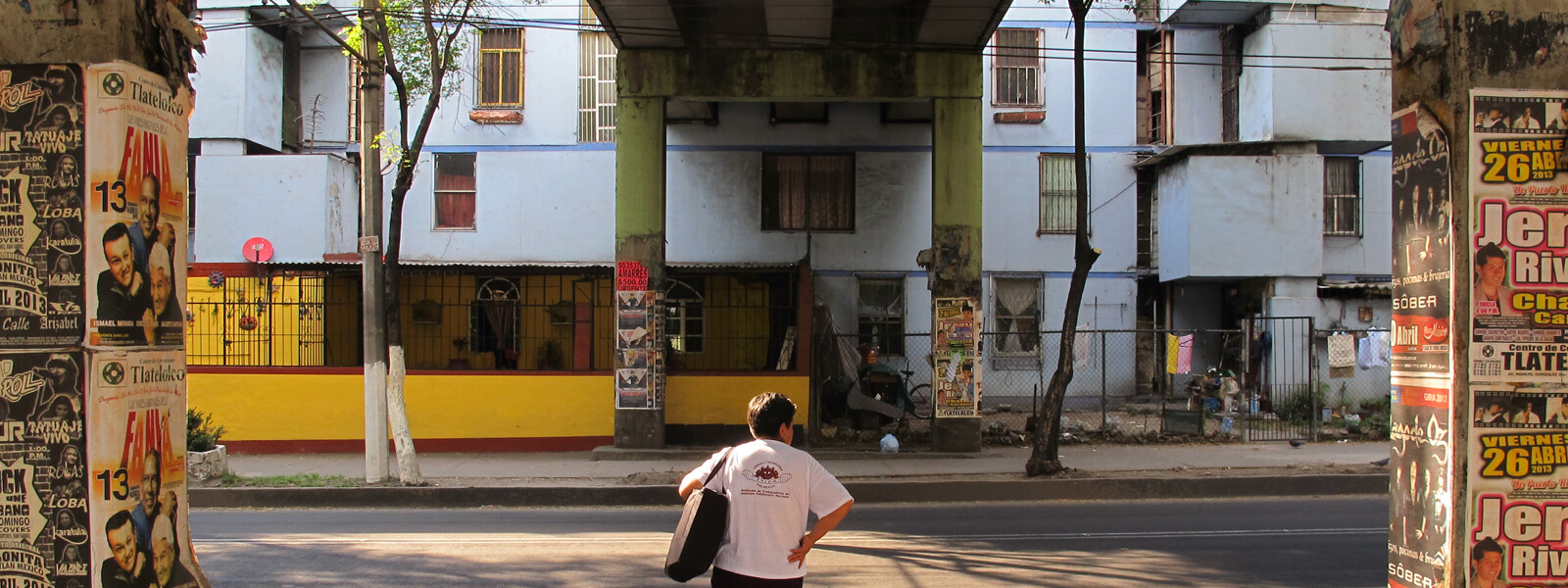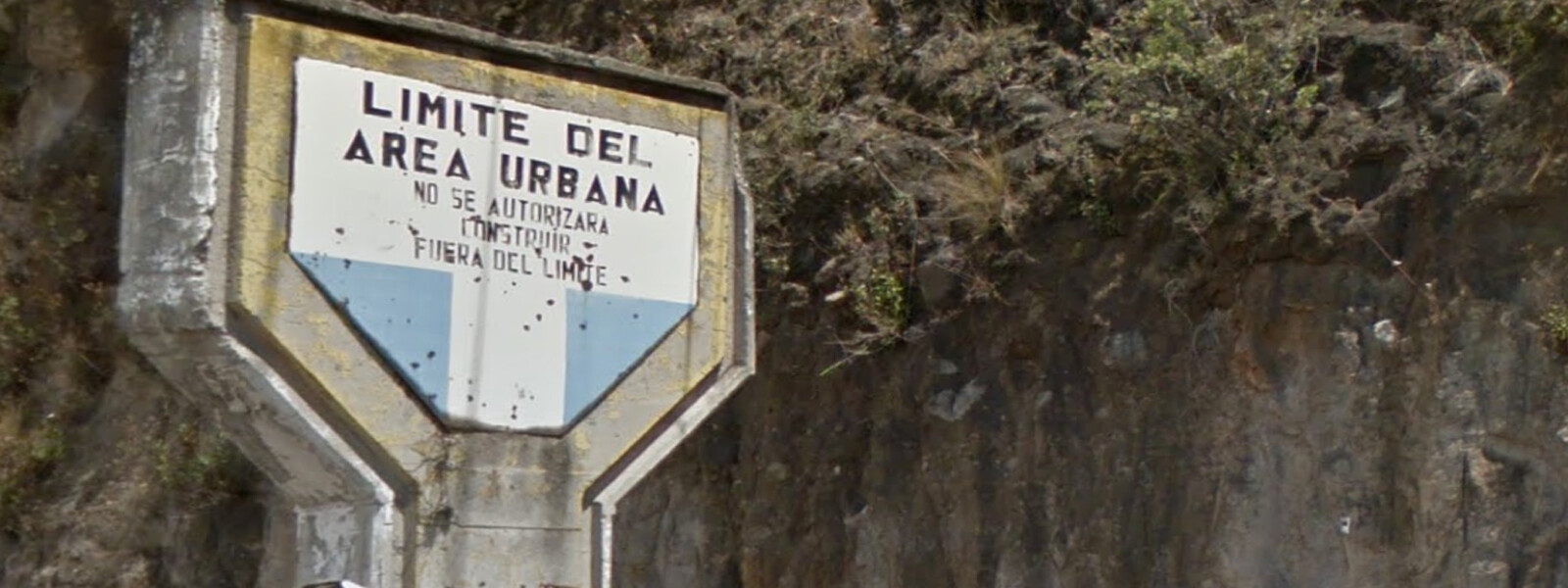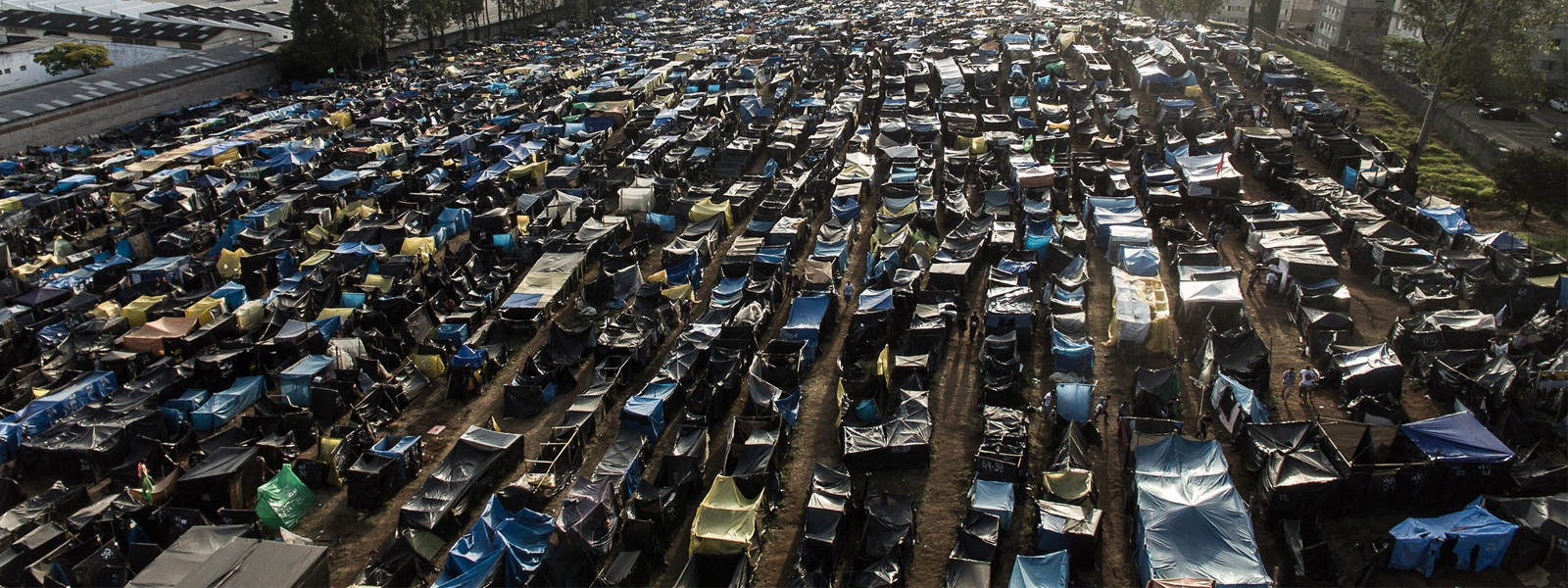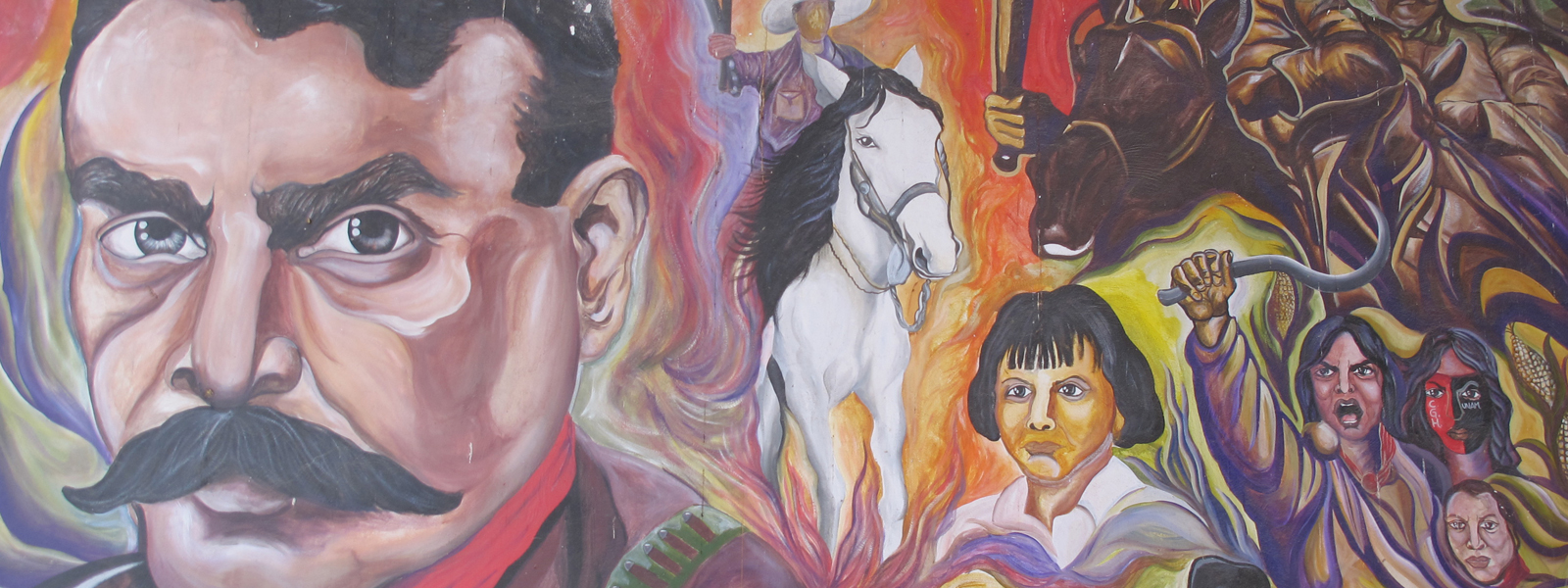(abstract in German)
Dekolonialisierung ist nicht als theoretisches Projekt, sondern als eine kritische Praxis zu verstehen. Mit dieser Forderung der bolivianischen Soziologin und Historikerin Silvia Rivera Cusicanqui als Ausgangspunkt befasse ich mich in diesem Vortrag mit dem transformativen Potenzial des dekolonialen Denkens und Handelns um herkömmliche Praktiken im Feld der Stadtforschung zu hinterfragen. Dazu gehören besonders etablierte Forschungsmethoden, aber auch die Art und Weise, wie wir schreiben, lehren, lernen und publizieren. Selbstverständlich gehört hierzu auch eine Reflexion darüber, wie unsere Praxis die Theorieproduktion beeinflusst.
Ein Fokus auf Machtverhältnisse, historische Unterschiede und ungleiche Wissensgeographien zum Thema Stadt stellt herkömmliche Erkenntnisweisen radikal in Frage und drängt auf experimentelle und kollektive Methoden um etablierte räumliche Vorstellungen nicht nur zu dezentrieren, sondern auch zu pluralisieren. Im Zentrum stehen die Fragen: Was sind die methodischen Konsequenzen für die Stadtforschung nach der post- und dekolonialen Kritik? Wie kann eine post- und dekoloniale Stadtforschung in die Praxis umgesetzt werden?
Ohne diese umfassenden Fragen vollständig zu beantworten, möchte ich einen experimentellen, kritischen und selbstreflexiven Einsatz von Methoden diskutieren. Anhand von konkreten Beispielen aus aktuellen Forschungsprojekten werde ich einige experimentelle Methoden der Stadtforschung vorstellen, die ich als besonders geeignet ansehe um kritische Perspektiven zu unterstützen.
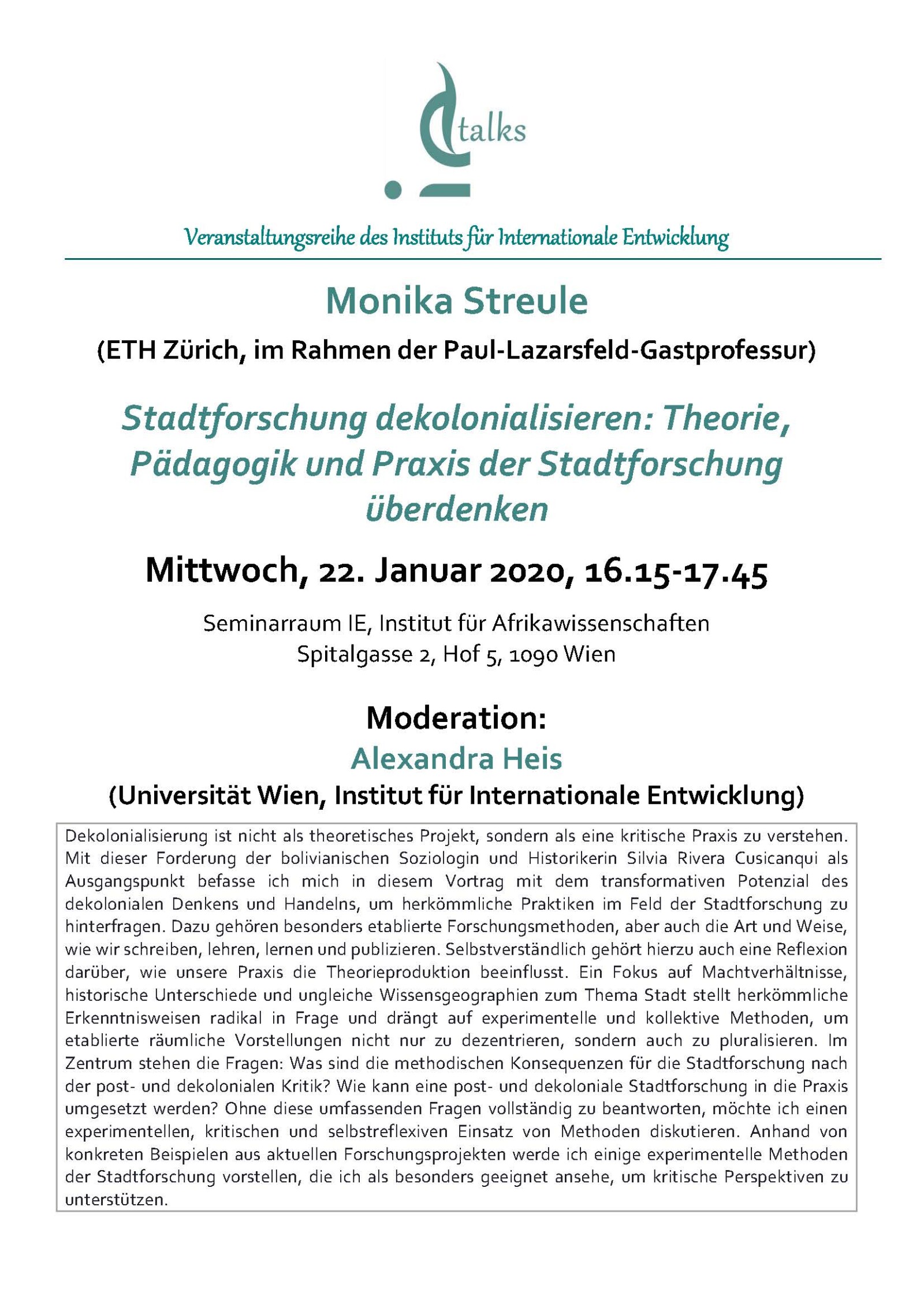
Vortrag im im Rahmen der Paul-Lazarsfeld-Gastprofessur
Mittwoch, 22. Januar 2020, 16.15–17.45
Seminarraum IE, Institut für Afrikawissenschaften Spitalgasse 2, Hof 5, 1090 Wien
Moderation: Alexandra Heis (Universität Wien, Institut für Internationale Entwicklung)
